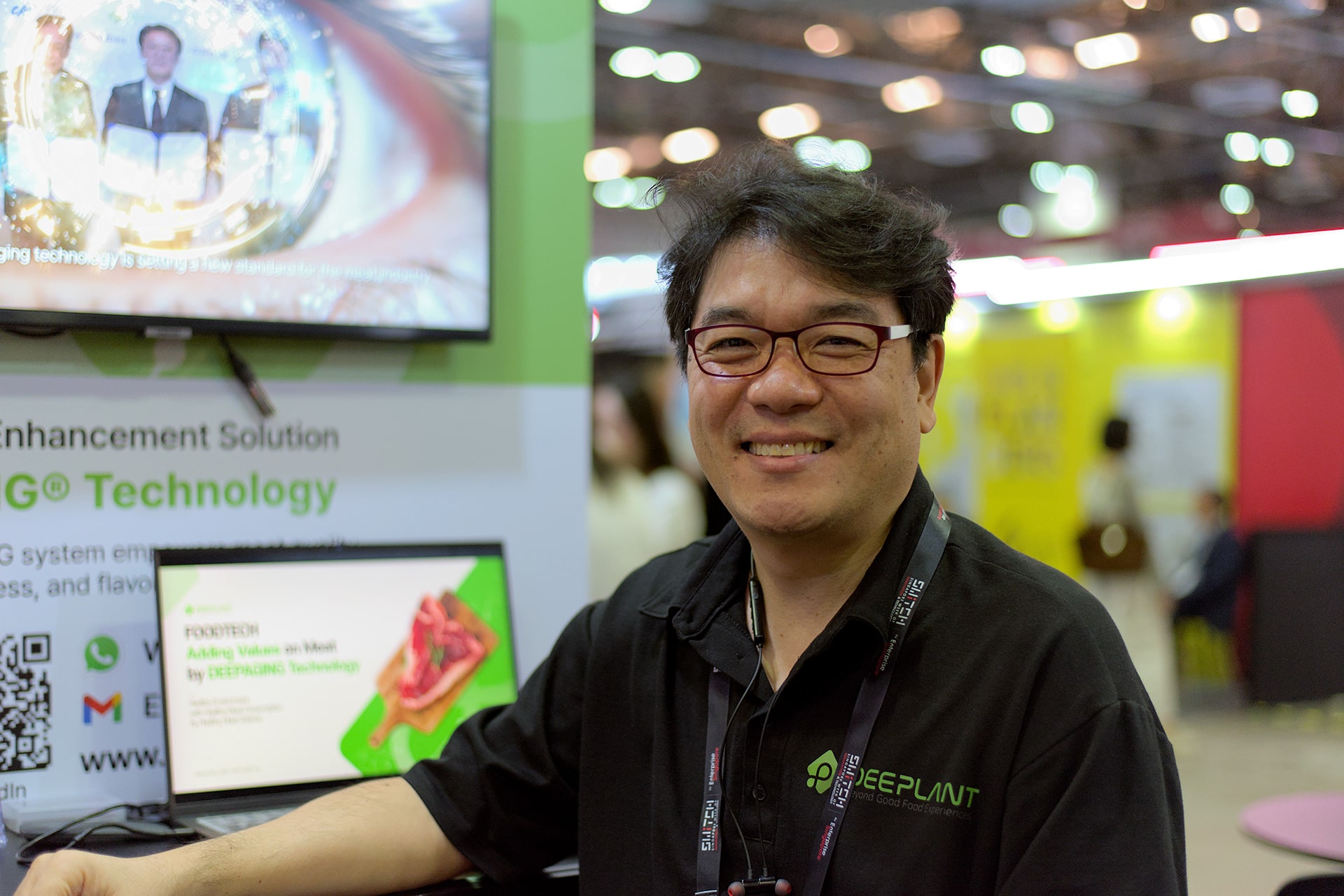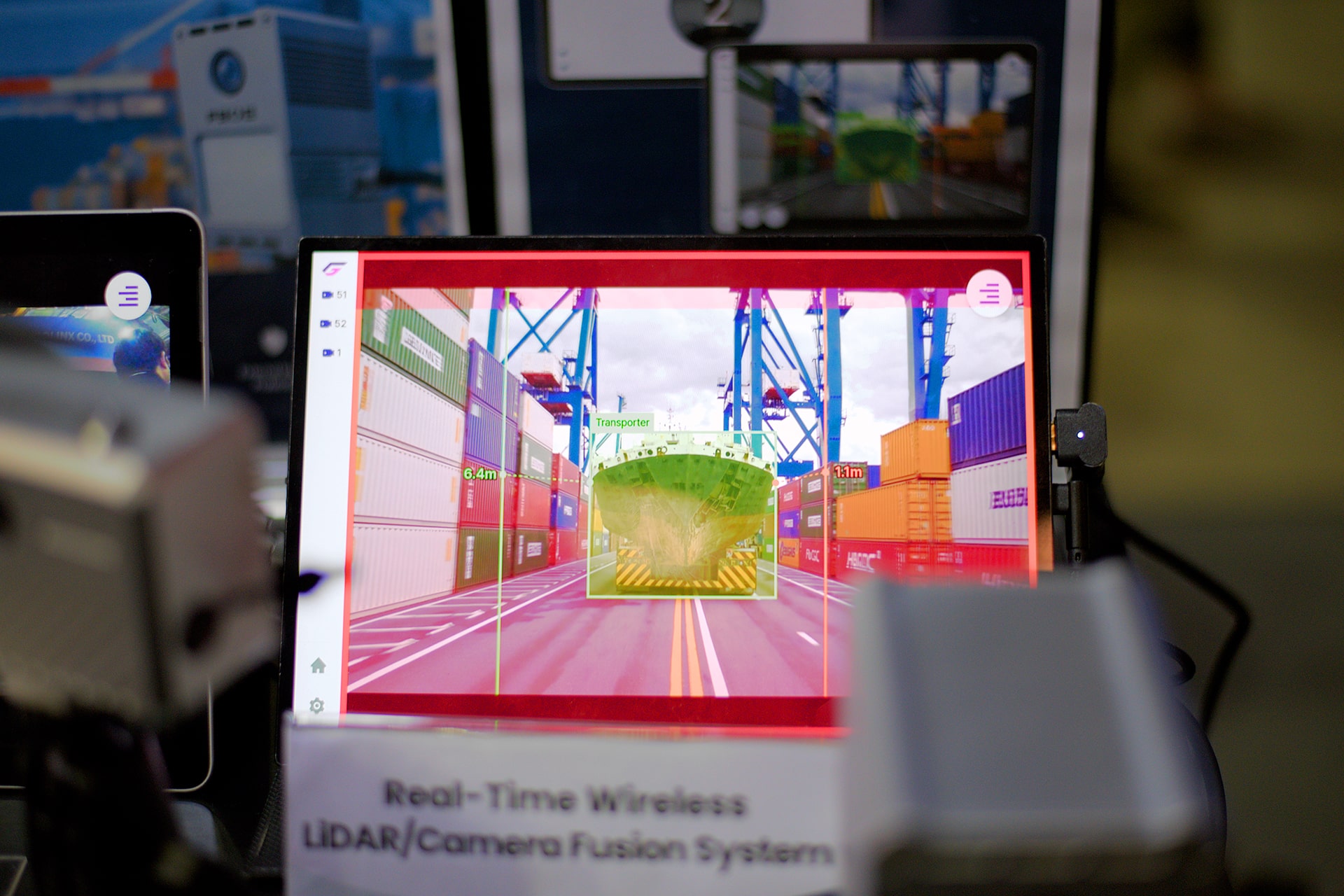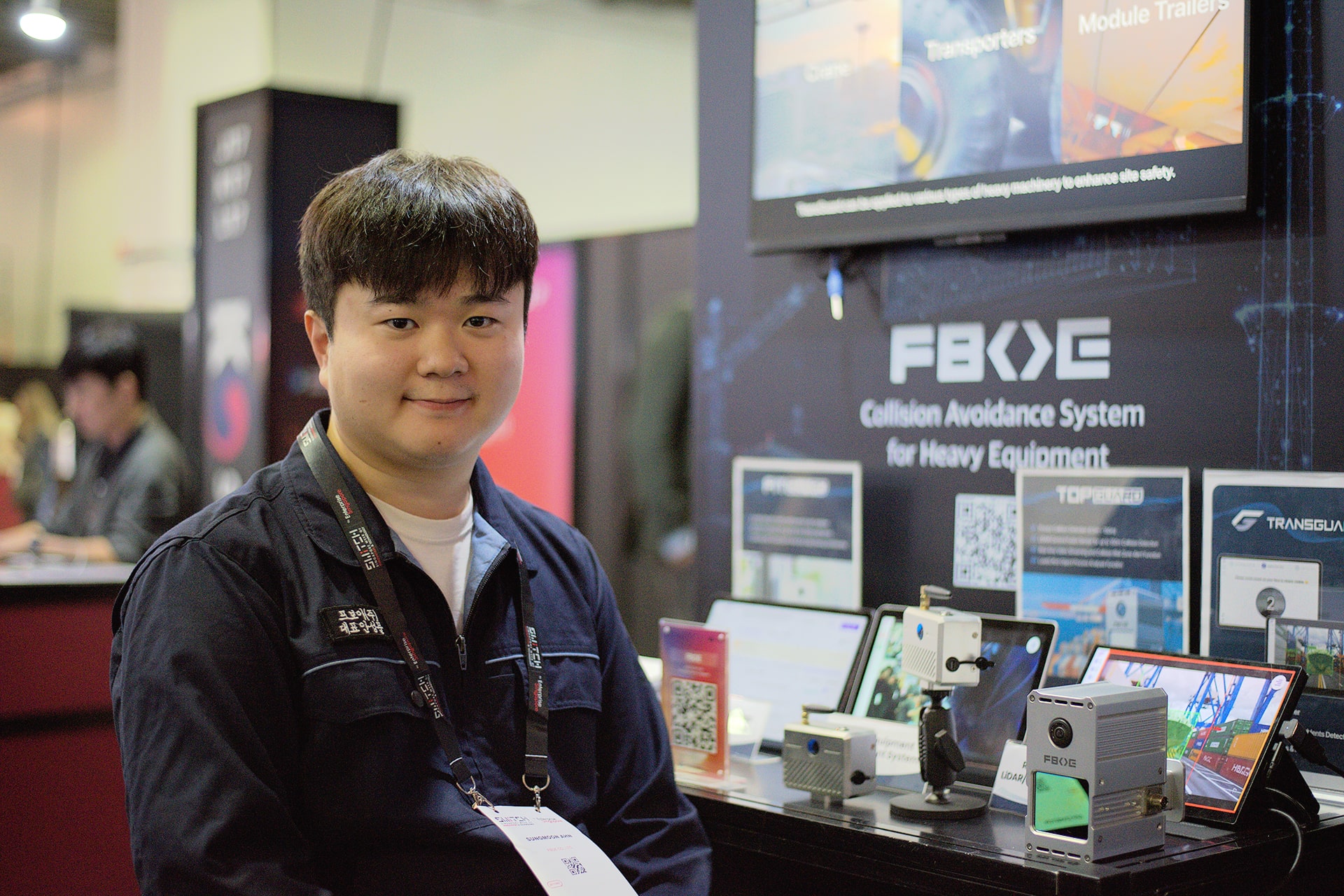For all the geopolitical tensions shaping today’s global economic landscape, firsthand experiences at major events can tell a different story.
At the Singapore Week of Innovation and Technology (SWITCH), an annual expo held this year between October 29–31 at Marina Bay Sands, a vibrant mix of booths and showcases filled the venue. Emerging players from around the world took part, reflecting the event’s international character.
Among them, as KrASIA observed on the first day, was a group of enterprising startups and companies from South Korea, whose representatives had flown in specifically to participate. Their presence was hard to miss. Adjacent to the hall’s main stage, the South Korean companies exhibited together under a single pavilion organized by the Korea Institute of Startup and Entrepreneurship Development (KISED).
KISED is a nonprofit organization backed by and operating under South Korea’s Ministry of SMEs and Startups. It was established to foster entrepreneurship, support startup growth, and strengthen the nation’s competitiveness.
As part of its mandate, KISED led the pavilion at this year’s SWITCH, positioning it as a gateway for participating South Korean startups to explore and expand into overseas markets.
Spread across several sections, the pavilion featured booths from South Korean startups at different stages of growth. KrASIA spoke with representatives from two of them, Deeplant and FBOE, each with varying levels of exposure to Singapore’s market.
Deeplant: Singapore first, then Southeast Asia
Founded in 2019, Deeplant is a food tech company focused on making the meat industry more sustainable and profitable, particularly by maximizing meat consumability.
According to Jaeha Choi, Deeplant’s chief officer of business development and global operations, the food industry typically trades meat by the whole carcass, with only about 30% of each animal yielding cuts considered premium or marketable. The remaining 70%, which tends to have less favorable fat composition, texture, or tenderness, is often discarded or processed into lower-value products such as minced meat.

Deeplant’s solution, a “deep aging” system, improves the quality of these lesser cuts by enhancing tenderness, a key consideration for restaurateurs when selecting meat. Choi’s explanation aligns with global precedents. Japan’s wagyu and South Korea’s hanwoo, for example, are prized for their flavor and tenderness, which is derived from marbling, the balance and distribution of fat within the meat.
Deeplant’s system builds on natural enzymatic processes already leveraged in conventional meat aging. Its innovation lies in accelerating this process, speeding up protein decomposition—the step responsible for flavor and texture changes—without chemical additives. According to the company’s website, the system can cut aging time by half while, by its estimates, improving flavor and tenderness up to threefold.
Choi said the company aims to commercialize the technology soon, focusing on its application to the underutilized 70% of meat cuts, reducing waste and improving producers’ profit margins.
With Singapore widely regarded as a gateway to Southeast Asia, thanks to its stable socioeconomic environment and strategic location, Deeplant sees it as a natural springboard into the region. This year marked the company’s third appearance at SWITCH, following its 2023 debut, when it was named among the top 50 startups in the event’s Slingshot competition that same year.
Choi told KrASIA that Deeplant plans to establish a Singapore entity next year and explore regional funding opportunities. “Singapore is the hub in Asia,” he said. “That’s why we’d like to start with Singapore.”
Meanwhile, the company is expanding its R&D to develop a more comprehensive system. One avenue involves integrating artificial intelligence for food quality grading and analysis, with the long-term goal of creating an end-to-end solution that can determine optimal aging levels and carry out the process automatically.
FBOE: Testing the waters in Singapore
In contrast, FBOE is newer to Singapore, though it has already built strong capabilities and backing in South Korea. Headquartered in the coastal city of Busan, the company has, since its founding in 2021, developed AI-powered solutions aimed at improving industrial safety and efficiency.
FBOE’s CEO, Sungmoon An, said his motivation for founding the company stemmed from a desire to apply AI in meaningful ways and to address the safety and efficiency gaps he observed in sectors such as construction.
For instance, FBOE’s flagship solution, TransGuard, uses AI to monitor and prevent industrial accidents, particularly collisions resulting from human error. It also includes features for operator verification, safety compliance, onsite surveillance, and other related applications.

Speaking with KrASIA, An said that FBOE’s inaugural participation in SWITCH through the KISED-led pavilion stemmed from its interest in the Singapore market, citing the country’s robust marine and shipping sectors. Singapore is widely recognized as the world’s leading logistics hub, according to the World Bank’s 2023 Logistics Performance Index (LPI). The index evaluates factors such as infrastructure quality, logistics competence, and tracking and tracing capabilities. As a global leader, Singapore’s freight and logistics market continues to expand, with Mordor Intelligence projecting a compound annual growth rate of 6.3% between 2025–2030, expanding from about USD 24.5 billion to USD 33.3 billion by the end of the decade.
An added that FBOE received strong interest from SWITCH visitors, which will inform the company’s analysis of Singapore’s market potential as it ponders international expansion. This follows a recent exploration in Japan, where FBOE signed a memorandum of understanding with an undisclosed concrete company.

South Korean startups deepen interest in Singapore’s market
Deeplant and FBOE are just two of 31 South Korean startups that exhibited at this year’s SWITCH as part of a program organized by KISED. The initiative was carried out in collaboration with the K-Startup Center and supporting bodies including the Busan Startup Investment Agency, Daejeon Technopark, the Pohang Technopark Foundation, and Startup KAIST.
In a memo shared with KrASIA, KISED noted that this year’s SWITCH contingent was its largest since 2022, yet it represents only a snapshot of the growing interest among South Korean startups in Singapore. Over the past five years, KISED said, more than 100 South Korean companies have entered the Singapore market. The organization attributed this trend to Singapore’s appeal as a global business hub and the mounting pressure on South Korean startups to expand overseas amid intensifying domestic competition.
The organization also highlighted South Korea’s strong R&D capabilities and its track record of producing startups agile enough to identify and seize international market opportunities.
SWITCH is one of several international events that KISED supports to help startups connect with potential partners and investors.
Deeplant’s Choi spoke positively of KISED’s role: “KISED’s program is very helpful, and they are getting better,” he said. “This time, I was able to meet a lot of [investors] and have one-on-one meetups, so I think they are trying very hard to help us, support us.”
Building on its participation in SWITCH, KISED plans to further expand its activities in Southeast Asia. Ultimately, its goal is to position Singapore as a launchpad for South Korean startups entering the region while fostering mutual growth between Southeast Asia and South Korea’s innovation ecosystems.
This article was published in partnership with the Korea Institute of Startup and Entrepreneurship Development (KISED).
